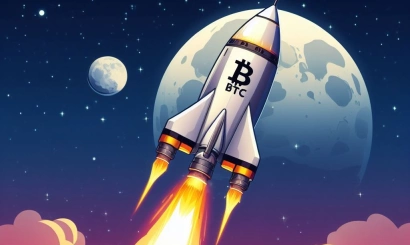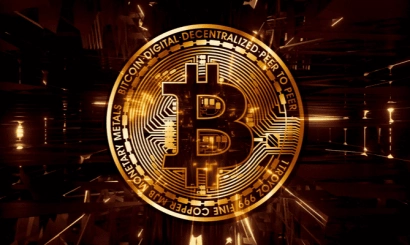Experts said the bitcoin exchange rate has lost its connection with the U.S. stock market
Bitcoin exchange rate has lost touch with changes in the S&P 500 and Nasdaq stock indices
The S&P 500 and Nasdaq have recouped losses from last year's bearish cycle, analysts say
Bitcoin has lost its connection with the U.S. stock market, its course is now changing out of sync with the dynamics of major stock indices, Coindesk wrote, citing a study of analysts at Block Scholes.
As the experts specified, the moving average of the correlation coefficient BTC with the traditional U.S. stock market indexes (S&P 500 and Nasdaq) for 90 days fell almost to zero. The reason was that both indices were able to recoup losses from last year's bearish cycle.
"The correlation is now at the lowest level seen since July 2021, when BTC was between two peaks in April and November," said Block Scholes analyst Andrew Melville.
Crypto traders who are focused on traditional market sentiment and macroeconomic events may face the fact that their forecasts are not justified, the publication emphasizes.
On the evening of July 3, the price of Bitcoin exceeded $31,300 for the first time since June 1, 2022. Asset updated its maximum for 13 months at $31.38 thousand. VTS rose in price by 1.1% overnight. At 9:30, bitcoin was trading at $31,000.
Bitcoin rate began to rise after it became known that the NASDAQ exchange resubmitted an application for registration of a spot bitcoin-ETF from BlackRock. In the adjusted documents, the cryptocurrency exchange Coinbase is listed as a partner of the investment company.
- Mastercard is preparing an experiment with tokenized bank deposits
- $11.5 billion in cryptocurrency lost in 2022 due to hacks and fraudsters
- Russia has caught up with the U.S. in the growth rate of cryptocurrency mining
- Cryptocurrency Bitcoin Сash tripled in ten days
- Bitcoin plummeted to $29,700 after news of ETF rejection
- Investment idea: Buying Litecoin amid the launch of EDX Markets
- Thailand, Singapore, and South Korea publish cryptocurrency regulations







